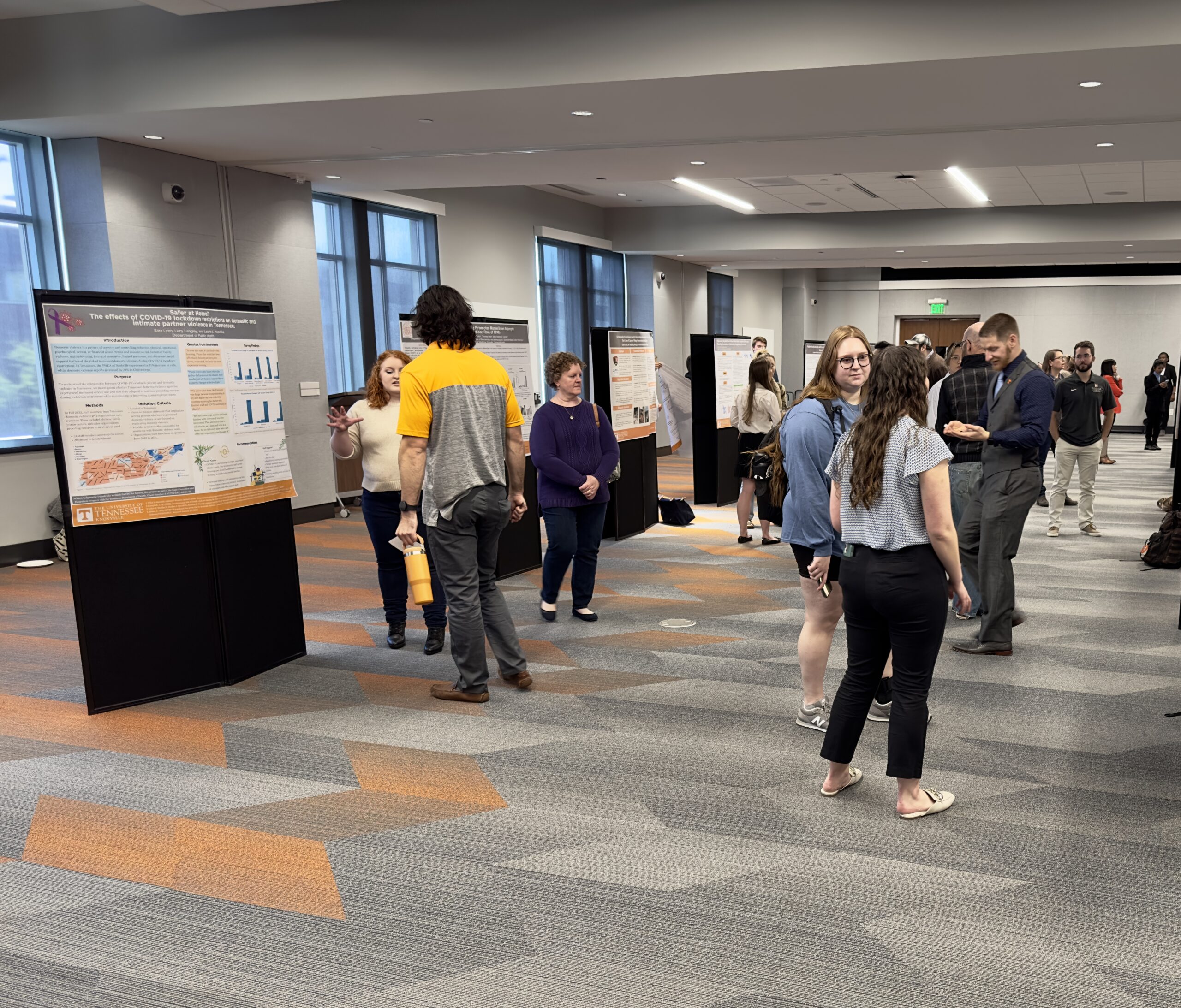By Macy Roberts, CEHHS Student Reporter, Class of 2024
At the 2023 Graduate Student Research Colloquium, Rachel Gustafson represented the College of Education, Health and Human Sciences’ Department of Educational Psychology and Counseling with her research “The Scales of Emotional Functioning: Preschool and Kindergarten (SEF:PAK).”
Gustafson developed SEK:PAK with the support of advisors Sherry M. Bell and R. Steve McCallum. The presentation at the colloquium was based on the results of Gustafson’s dissertation study aimed at identifying individuals and/or groups of students who would benefit from support and direct skill-building in areas of emotional intelligence (EI).
The measure looked at three areas: emotional awareness, emotional management and interpersonal skills. According to Gustafson, these three areas are consistent with what previous Scales of Emotional Functioning have successfully measured.
“The questions or items on the measure were developed to tap into behaviors that 4-year-old and 5-year-old children might exhibit in the classroom,” Gustafson said. “After developing the measure and asking local educators to complete it about their students, we began analyzing our data to determine how valid the SEF:PAK is as a measurement of EI and how many subscales it should have.”
All of the data used in SEF:PAK was collected from teachers and early childhood professionals from local school districts, as well as from a local licensed daycare facility that offers after-school programming. Gustafson noted that if she were to expand this study, she would increase and diversify the sample size by recruiting participants from different geographical regions.
Ultimately, Gustafson’s team concluded that the three-subscale structure they predicted – emotional awareness, emotional management and interpersonal skills – was actually not the best fit for measuring EI. Instead, a two-subscale structure was deemed more appropriate.
“This is consistent with other measures for young children, such as those assessing cognition, as their abilities are often not as differentiated yet,” Gustafson said. “As a result, the final version of the SEF:PAK produces an overall EI score as well as a score for each of its two subscales: emotional management – which now includes emotional awareness – and interpersonal skills.”
Once Gustafson determined this, she and her colleagues were able to remove items to make the scale more brief and efficient for educators to complete. Analyses then focused on the integrity of the SEF:PAK as a measure, and results indicated it is psychometrically strong.
“The last piece of our analyses were to look at how the SEF:PAK relates to a socioemotional screener that is used in classrooms across the country and identifies students with high levels of internalizing or externalizing behaviors,” Gustafson said. “As predicted, students who scored high on the SEF:PAK (exhibited high levels of EI) scored low on this other measure (exhibited low levels of concerning behavior).”
Gustafson said she has always been interested in how different skills emerge and develop in young children, particularly social skills and emotional knowledge. The SEF:PAK study was a result of Gustafson’s general interest in the preschool age and childhood development, as well as its relevance to her coursework and practicum experiences as a school psychology doctoral student.
“The final push was when I found that there is not a measure of EI out there for young children, though several have been developed for older children,” Gustafson said.
Gustafson described her participation in the 2023 Graduate Student Research Colloquium as quite helpful, given that she is someone who intends to remain active in research and would eventually like to enter academia.
“I appreciated that it was developed to be a learning experience for the presenters and allowed us the opportunity to present research to students and professionals outside of our respective fields,” Gustafson said.
The data collected during SEF:PAK allowed Gustafson to defend her dissertation, so as of now, data collection has concluded. However, Gustafson expressed interest in revisiting the project in the future to create a larger and more diverse sample.
